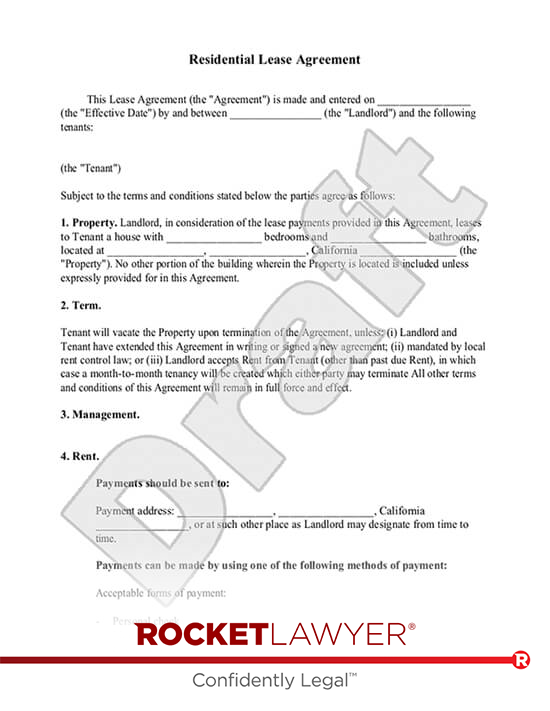What makes rental property uninhabitable?
Habitability typically means that basic health and safety needs are met. Unsafe living conditions may include:
- Not keeping out rain or snow.
- Poor wind protection.
- Extreme temperatures.
- Health hazards such as asbestos, lead, or mold.
- Structural problems like deteriorating ceilings or floors.
- Lack of functioning locks or other safeguards on doors or windows.
A landlord must take reasonable steps to prevent or repair these problems through routine maintenance, responding to tenant complaints, and performing reasonable inspections. Many landlords enter into a Maintenance Contract with a contractor or handyman in the absence of their own maintenance personnel.
Landlords generally bear little responsibility for an unreported problem. For example, if a tenant complains to the housing authority about no heat without ever telling the landlord, the landlord may only need to fix the heat without facing penalties. Landlords may require that repairs or issues be submitted in a Tenant Maintenance Request, or use this form to track incoming requests.
Of course, a landlord will want to catch problems early to save money on repairs or to avoid tenant complaints. This means proactive inspections. Common practices include annual inspections, quarterly inspections, or even monthly walkthroughs to examine and replace things like air filters. Depending on the jurisdiction, there may be no limits on how often inspections can occur, but overly frequent inspections may be considered unreasonable under the law or the lease. A Landlord's Notice to Enter is also usually required.
Are landlords required to provide both heating and cooling?
Most jurisdictions only require landlords to provide heating. Local laws often define a minimum temperature that has to be maintained. For example, New York City requires that when the outside temperature is below 55 degrees, the heating system must maintain 68 degrees during the day and 62 degrees at night.
Cooling is rarely required by law and may be treated as an amenity under the Lease Agreement. Generally, any amenities provided in a Lease Agreement, including air conditioning, must be maintained in working order by a landlord. Some state and local laws do require cooling. For example, in Arizona, if the unit has an installed air conditioner, the landlord must maintain it. Houston has an ordinance that requires an air conditioner to cool 20 degrees below the outside temperature.
In areas where mild summers are common, it's not unusual for units to lack air conditioners, with some leases even banning window units. This is the case in Portland, Oregon, but after a recent extreme heatwave, many local attorneys say the no air conditioner provision may be unenforceable when air conditioning is the only way to keep indoor temperatures safe.
Are landlords liable for injuries caused by extreme or unexpected weather?
Landlords have a reasonable duty of care to their tenants. This means taking reasonable steps to fix things in a reasonable amount of time. The weather, however, can change what's reasonable. For example, heating repairs are more urgent when the temperature is below freezing than when it is 60 degrees outside. Additionally, if there is an ongoing unaddressed issue, extreme weather may be considered a reasonably foreseeable hazard where the landlord may be liable for injuries caused by the weather.
At the same time, extreme or unexpected weather events may reduce a landlord's responsibility. For example, extreme weather overloads many heating and cooling systems causing contractors to be inundated with repair requests and new installations. Problems and delays that are outside of the landlord's control may be determined to be an act of God rather than the landlord's negligence.
Are landlords responsible for indoor air quality?
Landlords generally have limited responsibility for indoor air quality. Local laws may have ventilation requirements such as functioning windows or screens. Laws may require landlords to remove mold, asbestos, lead paint, or other irritants in certain circumstances.
Natural disasters, such as wildfires, may reduce indoor air quality but are generally outside of the landlord's control. For wildfire smoke, the biggest responsibility for the landlord may be to make sure that windows and doors may be tightly sealed, HVAC air filters are in working order, and there are no leaks in the home. The landlord may also provide special instructions to tenants like how to turn off the outdoor air exchange feature of the HVAC system.
To learn more about a landlord's responsibilities for indoor air quality and dangerous temperatures, how fast repairs need to be made, and the consequences for not making repairs, talk to a Rocket Lawyer network attorney or download the Rocket Lawyer Mobile App.
This article contains general legal information and does not contain legal advice. Rocket Lawyer is not a law firm or a substitute for an attorney or law firm. The law is complex and changes often. For legal advice, please ask a lawyer.
